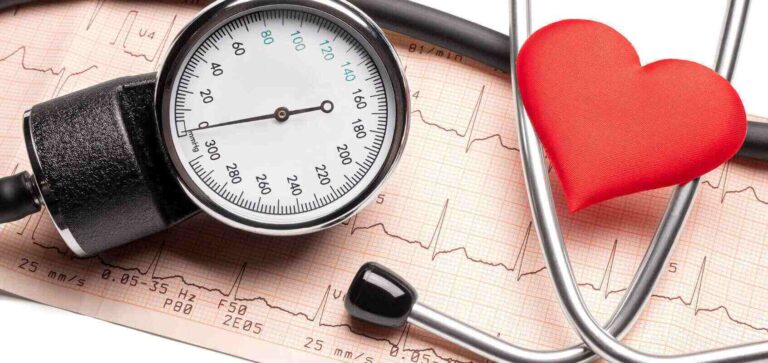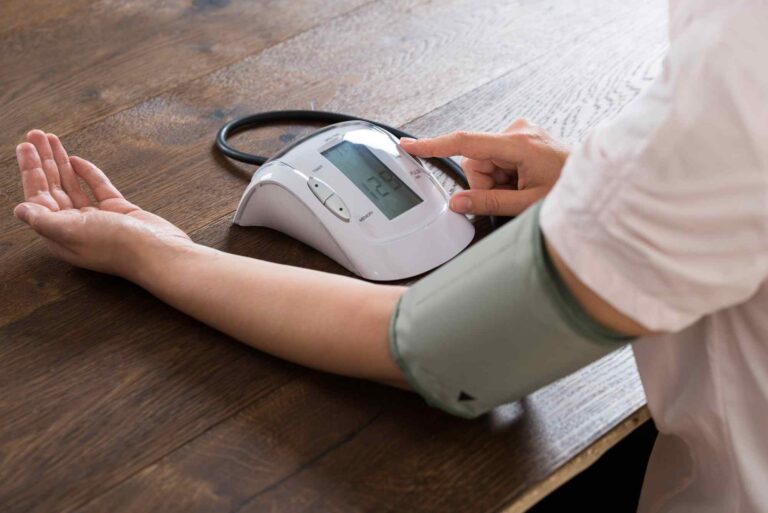High blood pressure, also known as hypertension, is a common medical condition that affects millions of people worldwide. Hypertension occurs when the force of blood against the walls of the arteries is consistently too high, which can cause damage to the blood vessels, heart, and other organs. While hypertension is a treatable condition, if left uncontrolled, it can lead to a range of potential health complications that can impact a person’s quality of life, mobility, and overall health.

One of the most common complications of high blood pressure is cardiovascular disease. Hypertension can damage the walls of the arteries and increase the risk of developing atherosclerosis, a condition in which plaque builds up inside the arteries, making them narrower and less flexible. Over time, this can lead to heart disease, heart attack, and stroke. People with hypertension are more than twice as likely to have a heart attack or stroke compared to those with normal blood pressure levels.
Another complication of high blood pressure is kidney damage. Hypertension can damage the blood vessels in the kidneys, making them less efficient at filtering waste products from the blood. Over time, this can lead to kidney disease, which can progress to kidney failure. People with hypertension are also at a higher risk of developing proteinuria, a condition in which protein is present in the urine, which can be a sign of kidney damage.
Hypertension can also affect a person’s eyesight. The increased pressure in the blood vessels of the eyes can cause damage to the retina, the part of the eye that senses light and sends signals to the brain. This can lead to a condition called hypertensive retinopathy, which can cause vision loss, blurry vision, and even blindness in severe cases.
In addition to these health complications, hypertension can also affect a person’s cognitive function. Studies have found that high blood pressure is associated with an increased risk of developing dementia and cognitive decline. The exact mechanisms behind this link are not fully understood, but it is thought that hypertension may damage the blood vessels in the brain, reducing blood flow and oxygen supply, which can lead to brain damage.
Hypertension can also impact a person’s quality of life by causing fatigue, headaches, and difficulty concentrating. High blood pressure can make it harder for the heart to pump blood to the body’s tissues, which can cause fatigue and weakness. Headaches are another common symptom of hypertension, particularly in the morning. If left uncontrolled, hypertension can also increase the risk of developing anxiety and depression.
Pregnant women with hypertension are also at risk of developing complications. Hypertension can cause damage to the blood vessels in the placenta, reducing blood flow and oxygen supply to the fetus. This can lead to a range of potential complications, including premature birth, low birth weight, and even stillbirth. Pregnant women with hypertension require close monitoring and may need to take medications to control their blood pressure.
Finally, hypertension can increase the risk of developing peripheral arterial disease, a condition in which the blood vessels in the legs and feet become narrowed or blocked. This can cause pain, numbness, and tingling in the legs and feet, and can increase the risk of developing infections and wounds that are slow to heal.
In conclusion, hypertension is a common medical condition that, if left uncontrolled, can lead to a range of potential health complications. These include cardiovascular disease, kidney damage, vision loss, cognitive decline, fatigue, headaches, anxiety and depression, pregnancy complications, and peripheral arterial disease. Fortunately, hypertension is a treatable condition, and lifestyle modifications and medications can be used to control blood pressure and reduce the risk of developing these complications. If you have hypertension, it is important to work with your healthcare provider to develop a personalized treatment plan that can help you manage your blood pressure and reduce your risk of developing complications. This may include making lifestyle changes such as exercising regularly, eating a healthy diet, limiting alcohol intake, and quitting smoking. Your healthcare provider may also prescribe medications to lower your blood pressure, such as diuretics, ACE inhibitors, beta-blockers, or calcium channel blockers.

Explore health complications of high blood pressure, learn to control it with lifestyle changes and medication, and work with your healthcare provider to monitor it regularly with Specialty Care Clinics. To book an appointment call (469) 545-9983.
